

Video games are liars, and you are a fraud. I’m sorry if that sounds harsh, but it’s best that you know this right now. I once thought as you do now. I thought I had achieved things. I thought I had overcome adversity and performed heroic, death-defying feats. But I know now that those adventures were a sham, a theme park version of danger and peril, my heroism puppeteered on invisible strings and my path to victory pre-paved. Because now I’ve experienced Alien: Isolation.
The Alien doesn’t give a fuck about how many of video games’ stupid lies you’ve believed. It couldn’t care less about your naïve, assumed privileges as Designated Protagonist. And if it had anything resembling relatable human emotions, it would laugh in the face of what you think you know about stealth and survival. I’ll let you into a little secret about Alien: Isolation. It isn’t a survival game at all. It’s a survival simulator. That’s very, very different to anything you’ve encountered before. Forget what you think you know. It won’t help here.
If Alien: Isolation can be summed up with any one word, then it’s ‘real’. Not ‘realistic’. Not ‘visually believable’. Not even ‘immersive’, that peak achievement of the best AAA games thus far. But flat-out, bona fide real, right through to its core, throughout everything it does.
Discovered in the death throes of a physical, social and economic collapse, Sevastapol station (resting place of the ill-fated Nostromo’s black box recorder) is a truly living ecosystem. And within it, you--even as Amanda Ripley, daughter of Ellen--are not special, protagonist’s rights be damned. Very quickly, that notion will be driven into you as hard as a sledgehammer shot. Every one of Sevastapol’s humanoid denizens--from aggressively defensive looter to low-fi, bargain-bin android--is driven solely by the same dynamic, emergent AI instincts that have given the titular beast itself such warranted attention. Every encounter brings immense depth and spiralling, potentially deadly possibilities. Your enemies’ behaviour is always logical but endlessly unpredictable, driven by emergent interplay between character, environment and circumstance.
Many licensed games use art and sound assets from the original source, but most, at best, do a good impersonation. Alien: Isolation feels like Alien. Clean lines and dirty surfaces. Brutal, utilitarian spaces and gently dancing light. The interplay between abrasive, ambiguous noise, weighted, underplayed dialogue, and thick, nervous silence. That atmosphere. Plenty of games, officially or not, try to steal the look of Alien, but only Isolation has ever captured its soul.
And you are not ready. Alien: Isolation’s stealth survival bears very little resemblance to what the genre has previously taught you. There are no set patrol patterns here, no easily identifiable, black-and-white states of alertness to be read and manipulated all the way to victory. This is a survival simulation. These are real, thinking, reacting threats, with their own agendas driven by anger, fear, stress, and steadfast self-preservation. They won’t give you any convenient windows of safety or any second chances. They’ll make you improvise every opportunity, however slim.
If this sounds potentially frustrating, don’t worry. Isolation deftly avoids that issue at every turn. While Isolation’s objectives are mostly linear, its environments’ intricate, branching paths provide a vast array of fresh, rewarding, creative approaches to navigation and evasion. Enemies will make full use of that as well, demanding complete awareness of every evolving situation. But combined, all of his turns Isolation’s stealth into a deeply satisfying, free-form sandbox, utterly devoid of the prescriptive play that often plagues the genre.
Manual save-points initially appear a harsh addition, but rapidly become a strategically exciting double-edged sword. Like Dark Souls’ bonfires, they present both the upset of the painfully-far-away (though in truth they never are) and joyful, victorious achievement upon reaching them. There’s also an electrifying risk/reward game. Do you plough on after a midpoint objective, or make a risky but potentially beneficial backtrack to safety? At first seeming a blunt, additional hardship, they actually amplify the tactical excitement of evasion and build a greater relationship with your environment. And that really matters, because you’re going to need every advantage you can muster.
Get caught in the open by a looter, and if you don’t back off quickly then there’s every chance you’ll be immediately face-down with a single bullet in your skull. And that’s if they even give you a warning. It’ll depend entirely on their mood. And that will depend on their previous emotional states, which in turn will depend on whatever dynamic events they were dealing with before you stumbled in. It’s chaos theory in practice, the shape of each encounter formed well before it begins, and playing out through nothing more than gloriously freeform, exhilaratingly unpredictable, skin-of-the-teeth desperation.

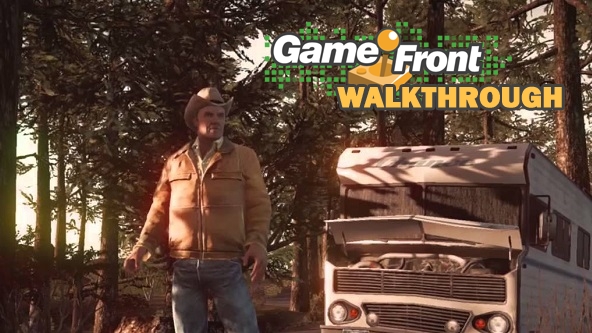


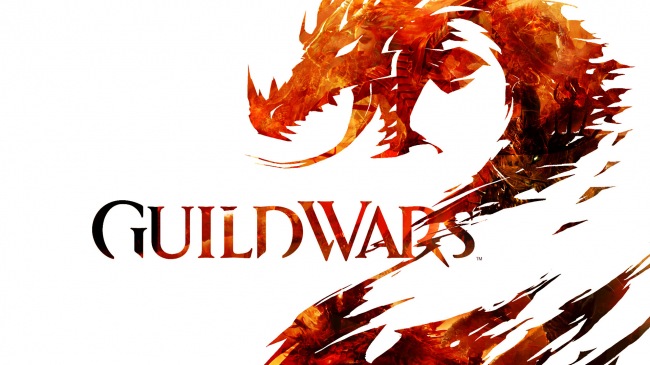 Guild Wars 2 Glitches and Little Hitches
Guild Wars 2 Glitches and Little Hitches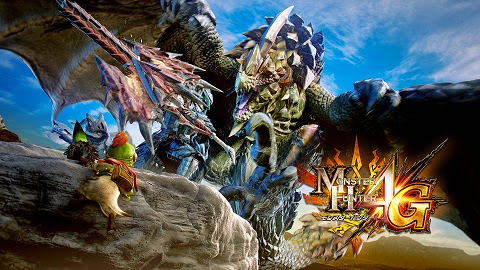 Monster Hunter 4 Ultimate (MH4U) 3DS - demo gameplay review
Monster Hunter 4 Ultimate (MH4U) 3DS - demo gameplay review Condemned 2: Bloodshot Guide
Condemned 2: Bloodshot Guide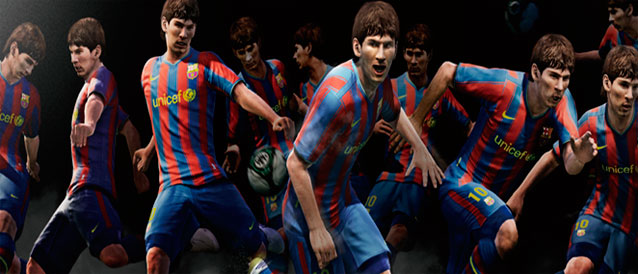 PES 2011 Tricks, Skills, Dribbling Tutorial Video Guide in HD
PES 2011 Tricks, Skills, Dribbling Tutorial Video Guide in HD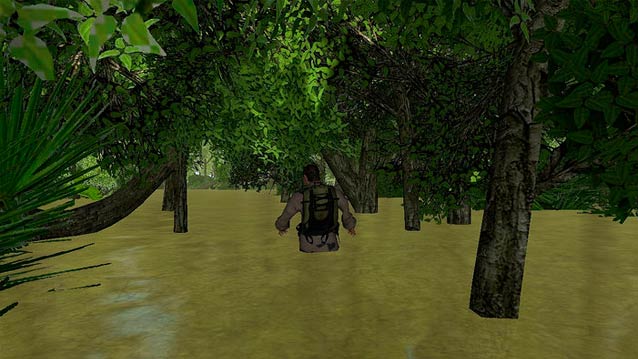 Worst game shown at E3 2010
Worst game shown at E3 2010